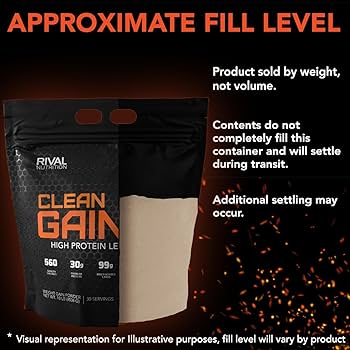Practical Guide to BCAA: Enhance Your Workouts for 2025

Understanding BCAA: The Essential Amino Acids for Fitness
What are BCAAs and Their Role in Muscle Building?
BCAAs, or Branched-Chain Amino Acids, consist of three essential amino acids: leucine, isoleucine, and valine. These components are critical for protein synthesis and muscle recovery. Unlike other amino acids, BCAAs are metabolized directly within the muscle rather than in the liver, making them an essential element for athletes and fitness enthusiasts. The specific ratio of these amino acids can stimulate muscle protein synthesis, enhance recovery, and promote muscle growth or hypertrophy.
The Benefits of BCAA Supplementation
The primary benefits of BCAA supplementation include improved muscle recovery, reduced soreness post-exercise, and enhanced muscle growth. Studies indicate that BCAAs can help minimize muscle breakdown during exercise and can significantly boost your training performance. For those engaged in high-intensity workouts or endurance sports, these amino acids can enhance energy levels and endurance by providing an additional energy source during exercise. This attribute is particularly beneficial for weight management and fat loss goals, as BCAAs may help maintain lean muscle mass.
When to Take BCAAs for Maximum Effectiveness
Timing your BCAA intake can significantly impact your workout performance and recovery. It’s best to consume BCAAs before, during, or after training. Pre-workout consumption can enhance energy and reduce fatigue, while post-workout intake helps speed up recovery and muscle repair. Some fitness professionals recommend taking BCAA supplements around 30 minutes pre-exercise and again immediately post-workout to maximize their effectiveness.
Incorporating BCAAs into Your Nutrition Plan
Building on the fundamentals of BCAA benefits, it’s crucial to understand how to properly integrate these supplements into your overall nutrition plan for optimal performance.
Creating a Balanced Nutrition Strategy
To effectively incorporate BCAAs into your diet, consider your overall caloric and macronutrient intake. A well-balanced diet rich in protein, healthy fats, and carbohydrates is essential for physical health and fitness success. BCAA supplements can complement this intake by ensuring sufficient amino acid availability for muscle recovery and growth. It’s vital to analyze your dietary patterns and consult a sports nutritionist if necessary to tailor a plan that aligns with your fitness goals.
Recommended BCAA Dosages and Forms
Understanding the appropriate dosages is crucial when considering BCAA supplementation. The general guideline suggests taking 5-20 grams of BCAAs per day, divided throughout the day based on your workout schedule. BCAAs are available in various forms, including powders, capsules, and ready-to-drink beverages. The powder form is particularly popular due to its versatility and ease of mixing with water or pre-workout drinks.
Common Myths and Misconceptions about BCAAs
Several myths surrounding BCAAs can lead to confusion among athletes. One common misconception is that BCAA supplementation is necessary for everyone, regardless of their nutritional intake. In reality, individuals who consume adequate protein through diet may not require additional BCAA supplements. Moreover, some believe that BCAAs alone can significantly improve performance without the need for a balanced diet, which is not true. A comprehensive approach, including a nutrient-rich diet and proper training, is essential to achieving optimal results.

BCAAs and Performance Enhancement Strategies
With a clear understanding of how to incorporate BCAAs into your nutritional strategy, let’s explore their role in enhancing overall performance.
Enhancing Training Performance with BCAAs
BCAAs significantly contribute to performance enhancement by decreasing exercise-induced fatigue and muscle soreness. This effect allows athletes to push harder during workouts and achieve greater results. Research shows that supplementation before and during exercise can improve endurance and promote more extended training sessions. By reducing fatigue, athletes can perform more reps and sustain higher intensity levels, ultimately achieving more substantial fitness gains.
Role of BCAAs in Muscle Recovery
Post-exercise recovery is crucial in preventing injuries and maximizing gains. BCAAs facilitate muscle repair and glycogen replenishment, reducing recovery time between workouts. Integrating BCAAs into your recovery process can lead to less soreness and faster return to training. This component is essential for athletes involved in regular intense training sessions, allowing them to keep up with their training schedules without significant downtime.
The Impact of BCAAs on Weight Loss and Muscle Retention
During weight loss, maintaining lean muscle mass is critical. BCAAs play a fundamental role in supporting muscle retention while facilitating fat loss. They can help suppress appetite, which may lead to lower caloric intake without sacrificing muscle. Additionally, maintaining muscle mass through BCAA supplementation can enhance metabolic rate, aiding in faster fat loss while preserving energy levels.
Expert Recommendations for Effective BCAA Supplementation
To promote the effective use of BCAAs for enhanced workouts, consider expert advice and insights.
Consulting with a Sports Nutritionist
Working with a certified sports nutritionist can help you develop an individualized supplementation and nutrition plan tailored to your training goals. They can assess your dietary needs and recommend appropriate BCAA dosages and timings based on your workout intensity and overall needs. Individualized advice ensures you maximize your workout benefits and nutritional intake.
Combining BCAAs with Other Supplements
BCAAs can be effectively combined with other supplements, such as whey protein or creatine, to enhance their effectiveness. Timing and ratios for combining these supplements can vary based on your training regimen and personal fitness goals. Consulting with a professional can guide the most effective combinations.
Listening to Your Body: Monitoring Effects
It’s crucial to monitor your body’s response to BCAA supplementation. Keeping track of progress, recovery times, and any physical discomfort can help assess the effectiveness of the supplementation. Adjust the intake or consult with a specialist if you experience any adverse effects.
Conclusion: Elevating Your Fitness Journey with BCAAs
Incorporating BCAAs as part of your broader nutritional strategy offers inherent advantages for muscle growth, recovery, and performance. By understanding their role and integrating them wisely into your fitness regimen, you’re setting the stage for achieving your fitness goals in 2025 and beyond. Always remember, the key is consistency and monitoring your body’s responses to optimize results effectively.
Your Questions on BCAA: Answered
What is the best time to take BCAAs?
The best time to take BCAAs is before, during, or after your training sessions. Consuming them pre-workout can enhance energy, while post-workout intake is vital for recovery.
Can BCAAs help with weight loss?
Yes, BCAAs can aid in maintaining muscle mass during weight loss phases, allowing for a more effective fat loss process while keeping energy levels up.
Are there any side effects of BCAA supplementation?
While BCAAs are generally safe, excessive consumption can lead to digestive upset or fatigue. It’s essential to follow the recommended dosage guidelines.
How do BCAAs compare to whole protein sources?
BCAAs are a direct source for muscle recovery and can be beneficial when combined with whole protein sources to enhance overall protein synthesis and recovery.
What role does BCAA play in muscle soreness?
BCAAs can reduce muscle soreness and damage, facilitating quicker recovery and enabling you to return to your workout routine sooner.
